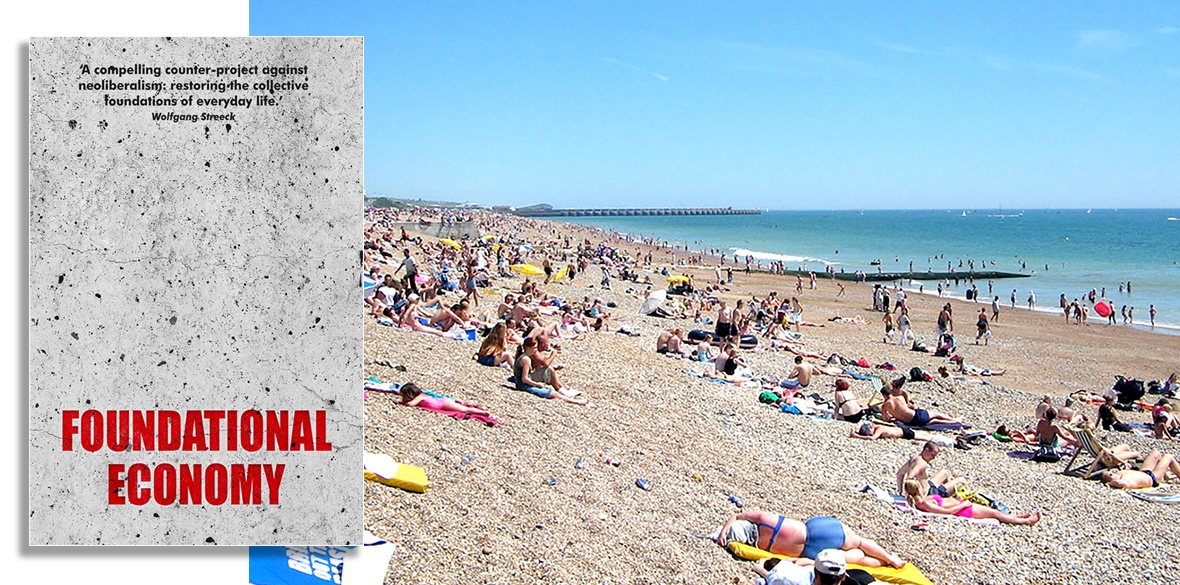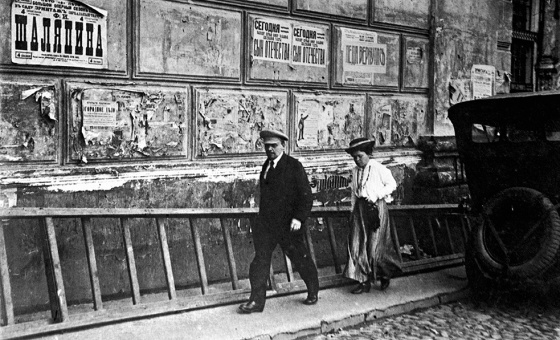This is the last article you can read this month
You can read more article this month
You can read more articles this month
Sorry your limit is up for this month
Reset on:
Please help support the Morning Star by subscribing here
Foundational Economy: The infrastructure of everyday life
by The Collective Foundational Economy
Manchester University Press £11.99
THE opening chapters of this book reminded me of president John F Kennedy’s trenchant and moving attack on the idea that a country’s progress can be judged by GDP figures. The Gross Domestic Product, he said “measures everything... except that which makes life worthwhile.”
Many proposals to re-focus economy theory and policy away from national income accounting have been published. In this case the focus is the “foundations” of an economy – consisting of zones “producing daily essential goods and services which are critical to citizens flourishing.”
There are three main areas: the “material” Foundational Economy (FE) consists of those pipes and networks “which continuously connect households to everyday life including water, electricity, food, transport and telecoms.”
The “providential” FE covers mainly universal public services and welfare provision, especially health and education (but for some reason excluding housing). A third is “overlooked goods” – occasional purchases which are “culturally required,” such as a sofa or a holiday. Together, the authors estimate these provide 64 per cent of UK employment, and 59 per cent in Germany.
Having traced the history of municipal interventions from the late 19th century, which effectively focused on the material and providential zones, the authors seek to understand the “wrecking” of the FE over the past 40 years. One point is made powerfully.
Historically investment in those two areas was low risk, and private investors expected margins of about 5 per cent: privatisation and outsourcing brought in private equity and investment trusts who normalised returns of 10 per cent and more on these still low-risk sources of revenue.
In order to realise these targets firms reduced costs (wages, suppliers’ prices) and boosted income, for instance through confusing tariffs in energy and telecoms, and stripped assets.
However, elsewhere the analysis of why the FE was destroyed is flawed and the authors are fearful of an analysis which would focus on systemic exploitation under capitalism. Important empirical work by, among others, Michael Roberts on profit rates or Philip Mirowski on post-war conservative think tanks are ignored.
The latter tracks effective conspiracies to open up “by stealth” new risk-free investments in utilities and public services. Instead we are told that privatisation was “carelessly” implemented by “the wrong kind of experts,” or that reducing public debt “was an ideational problem in finance ministries across Europe.”
Perhaps this rather naïve account is dictated by the authors’ unwillingness to confront the very profiteers they have critiqued. For the policy prescriptions are pedestrian.
The authors reject “business friendly” policies but see nationalisation as too difficult and insist that alternatives should be guided by recognition that “private business enterprise is here to stay... and should be given a legitimate place as a provider of essential public services.”
Instead they advocate “social licensing” where corporations must abide by certain conditions to gain a license to trade, covering employment practices, supplier contracts and financial practices such as debt financing.
Such licensing is an additional useful regulatory tool for a government but is it not just as likely as nationalisation to attract stiff opposition from the private sector?
If a government persisted, profits would be likely to fall prompting “capital flight” from the affected sectors, leaving the government no alternative but step in and nationalise.
So why not nationalise areas of the Foundational Economy if there is the political mandate and will to carry it through?











